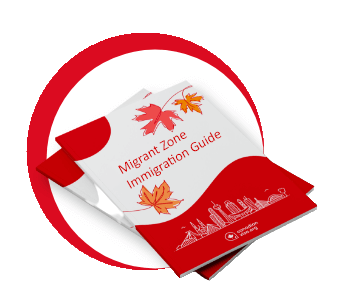Francisco Manalo is a highly qualified and experienced Regulated Canadian Immigration Consultant (RCIC). Over his years as an RCIC, Francisco has helped dozens of clients fulfill their Canadian dreams, through multiple streams and immigration programs. Francisco went through the immigration process to Canada, himself and became a permanent resident of Canada in 2012.
Canada is open to immigrants from all over the world and provides equal opportunities for everyone, but for Francisco, what’s truly special about Canada is the social, religious and political freedom afforded to each and every person in Canada. To Francisco, Canada is as close to an ideal place to live as a country can be.
Francisco believes in helping people bring their dreams of living a new life to reality. As an RCIC, Francisco is highly experienced and passionate about getting more people the chance to live the life of their dreams in Canada.
Francisco understands both how important it is that you pay close and consistent attention to every aspect of your application process while ensuring that you as the client remain consistently informed so you know exactly what operations are taking place and how each development affects you.
Francisco is dedicated to ensuring others can start their brighter future in Canada the way he has and is willing to help you get the start you need!

Q&A with Francisco Manalo
To get to know Francisco a little better, we asked him a few questions about his history as an RCIC and his experience with the Canadian Immigration process.
What Initially Attracted you to Canada, and What Made You Move There?
Canada is an open country to immigrants from all over the world. The work market and opportunities are equally available for everyone. Canada is advanced and a member of G7 countries. Canada is a free country; everyone with any social, religious and political thoughts is accessible here without discrimination. Of course no, where in the world is an Ideal paradise, but I can be confident that Canada is close to Ideal compared to other countries.
Which Province did you Decide to Settle in, and What About that Province Made it Work Best for You?
I decided to come to BC because my brother-in-law and my wife's other family are in BC. The adaptability factor here worked the best for me.
Under Which Program did You Immigrate to Canada, and What Did You Learn from That Process?
Federal Skilled Worker. We applied in the spring of 2006, and It took six years in total for us to land in Canada. I learned that sometimes the immigration process could get lengthier than expected, especially when the government changes the existing immigration program streams. But if we inform the applicants about the changes and new programs, they can finally reach their goals.
What Was the Biggest Challenge the Applicants you've Worked with Face when Trying to Immigrate to Canada, and How Can it be Avoided?
The biggest challenge for temporary status applicants is to prove their ties to the country of origin and to prove they are bonafide applicants.
The biggest challenge for permanent resident applicants is finding the best program that matches them. They need a comprehensive strategy, and sometimes they must think about a temporary status before applying for a PR status.
What was the Most Significant Difference Between Outsiders' Perception of Life in Canada and What Life is Like There?
If the outsider's perception is based on their research about life in Canada, it would be close to their expectation. People must be realistic and prepared for harsh situations, especially in the first few years of immigration.
How Does One Become an RCIC? What Qualifications/ Certifications do you Need?
To become an RCIC, you need to have the following qualifications:
- Have a post-secondary degree at least equal to a bachelor's degree.
- Attend an immigration and citizenship course in a designated college/university and acquire a diploma.
- Be a PR or citizen of Canada.
- Meet the English or French language requirements.
- Be a lawful citizen with no criminal record. You must comply with the code of conduct and professional ethics.
- Pass the College Entry to Practice exam.
- Pay your annual membership fees and follow the college's other requirements.
Why did you Become an RCIC, and How do You Feel it Benefits Potential Immigrants the Most?
I became an RCIC because I am responsible and ready to help people to bring their dreams of living a new life to reality.
How Many People Have you Helped Get Visas/ Permanent Residency/ Citizenship to Canada and What Have you Learnt from Helping Others with Their Journey to Canada?
About 40 people, including the ones I helped in the MDC office. My knowledge and experience are increasing continuously. I also learned about the different personalities the clients may have and how to deal with each personality.
As an RCIC, you can Liaise with Canadian Immigration Authorities on Behalf of Clients. What does this Entail, and How Do You feel it Benefits your Clients?
The benefit for my clients is that they will know what expectations IRCC has when applying. Even if the application result is refused, there would be no red flag for them in their files and future applications. Because we, as regulated professionals, make our clients aware of the consequences of misrepresentation or making mistakes that may result in refusal because of misrepresentation.
What Advice Would you Give to Someone Looking to Immigrate to Canada Who has no Idea Where to Start?
My advice is that it is worth it if they use the help of an experienced RCIC. The consultant will open their mind about immigration in general and the available programs that fit them.
Getting Started
RCIC's can help you take advantage of the vast arrays of opportunities Canada provides. If you would like to utilize one of the many amazing services RCICs provide, click the button below to see how we can help you.




